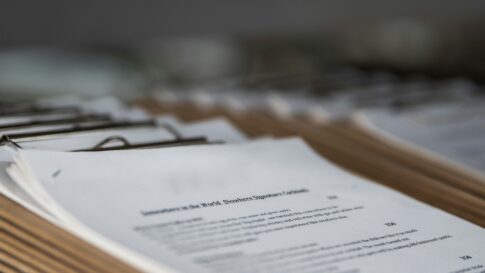Instance in which a bureaucrat of the METI made a golden parachute into Amazon Japan.
This section sets out the reason for the Claimant seeking application of Article 24 of the Antimonopoly Act and the injunction, even though fighting this lawsuit as a pro se legal representation puts the Claimant in an overwhelmingly disadvantageous position.
Other countries, including those in the EU, the regulating authorities of the UK and Italy, and US consumers have successively filed lawsuits against Amazon.
When the Claimant first received the ‘counterfeit without test buy’ claim from Amazon, she contacted the JFTC to discuss it over the phone. However, the female telephone operator did not even hear the problem the Claimant was facing and simply informed the Claimant that she should contact a lawyer, which was more or less the same answer a chatbot would have given. The Claimant also sent a complaint by filling in the form available on the Digital Platform Consultation Desk run by the Ministry of Economy, Trade and Industry (hereinafter called ‘METI’). However, no follow-up has been forthcoming.
In 2021, the number of complaints in relation to Amazon Japan had reached approximately 57,000. The Japanese government designated at least one of their bureaucrats in the METI to make a golden parachute into a Big Tech company to investigate whether there was any problem with Big Tech companies based on the Act on Improving Transparency and Fairness of Digital Platforms (TFDPA) enforced in 2021. In actuality, what the METI conveyed to Amazon were requests for corrective actions only, which simply meant pointing out what the problems were, and these had no enforcing status. The Japanese government, therefore, allows Amazon to voluntarily request improvements and such a tendency will never be changed no matter how many years have passed.
Moreover, when the bureaucrat of the METI made a golden parachute into Amazon Japan, he bragged that, ‘Whenever I come across the misunderstanding expressed by some members of Parliament that Amazon has not paid corporate tax, I thoroughly explain Amazon’s tax payment status in Japan’. He even published an autobiography in which he brazenly boasted that ‘contactless deliveries in Japan would never have been feasible if a government official like me had not been parachuted into Amazon Japan’, even though it was obvious that the contactless deliveries being introduced overseas to reduce redeliveries would, sooner or later, also be introduced in Japan, regardless of whether he was working for Amazon Japan.
On 11 November 2021, the METI gave Amazon the special ‘Excellent Company Award for Product Safety Measure’ in the online marketplace operator’s category and commended them. Subsequently, a consumer who had been caught in a fire caused by an item purchased from Amazon and filed a lawsuit against them to compensate for his loss posted a message on his website expressing fury at the METI for giving Amazon such an award. Further to this, he sent a letter of inquiry to the Ministry asking for an explanation. Moreover, although the Claimant herself reported Amazon because a brand she sells had been posted as a product recall on their website (the Claimant did not sell the recalled product and found out that another seller actually sold it on Amazon), Amazon took no appropriate measures whatsoever, including informing sellers who might possibly have sold the recalled item to take action. Thus, the special award could have been a result of the former bureaucrat, who golden-parachuted into Amazon, exerting his influence over the workplace.
In response to the numerous complaints made against Amazon, if the attitudes of the government and the organisations that should be in charge of regulating them are akin to simply beating the air, no matter how many years pass, the Claimant has no choice but to fight, even if this means a pro se legal representation.
The most salient issue here is that the Claimant was the victim of a false accusation by Amazon that was not supported by any evidence whatsoever. This was utterly devastating for the Claimant, who was on the receiving end of a declaration by the presiding judge that, ‘I will treat the case as if no claim from the Claimant exists’. Even if this Brief gives the judicial panel an even worse impression and exacerbates her situation, it is as a result of the facts being written; that is, how the Claimant had been treated by the presiding judge. If those challenging Amazon in the future read that the judgement went against the Claimant but find her experience useful in enabling their challenges to be successful, she will consider her action to have been of use to society.
Read about this in more detail: Claimant’s Brief 14 (pp.142-151)







